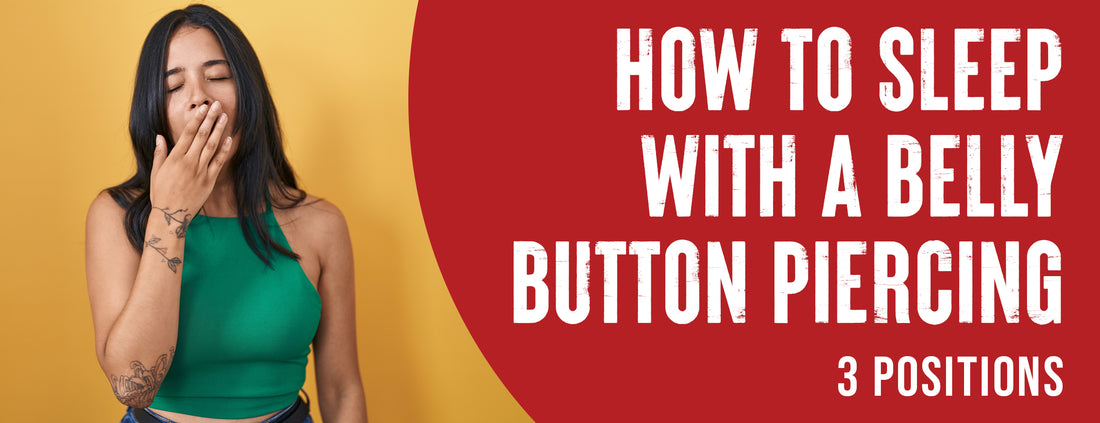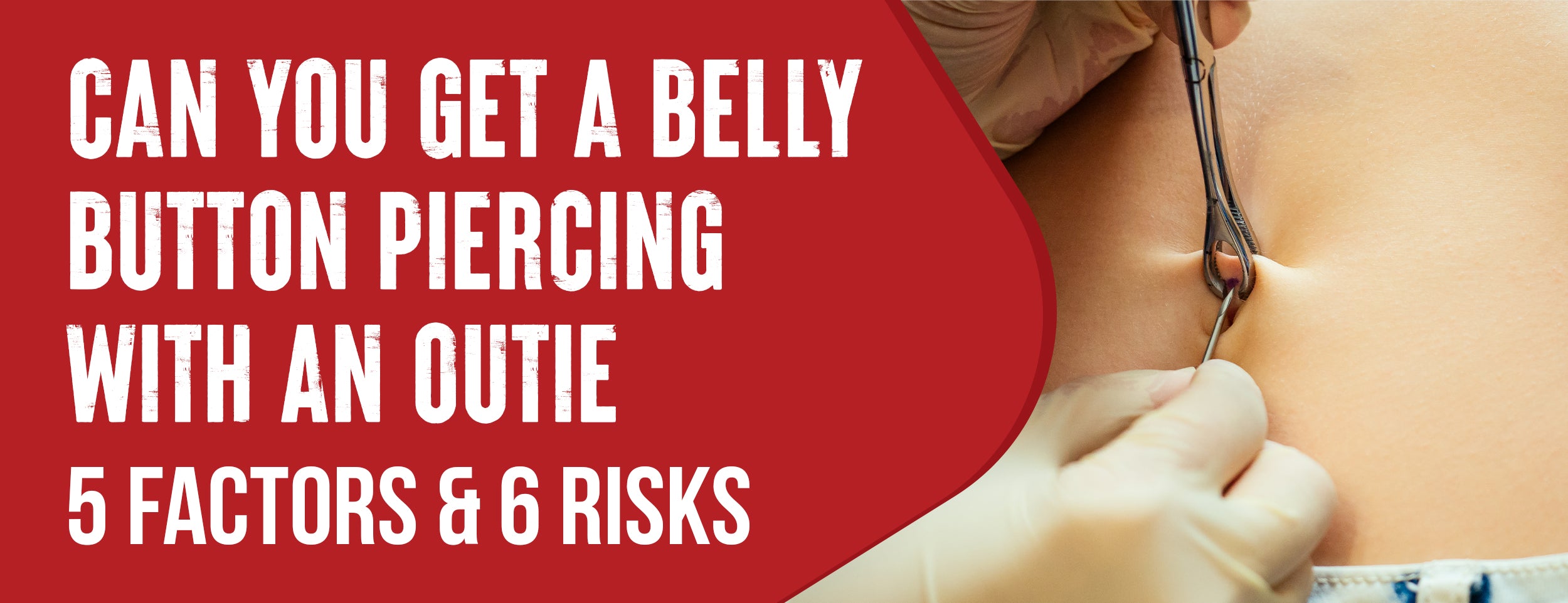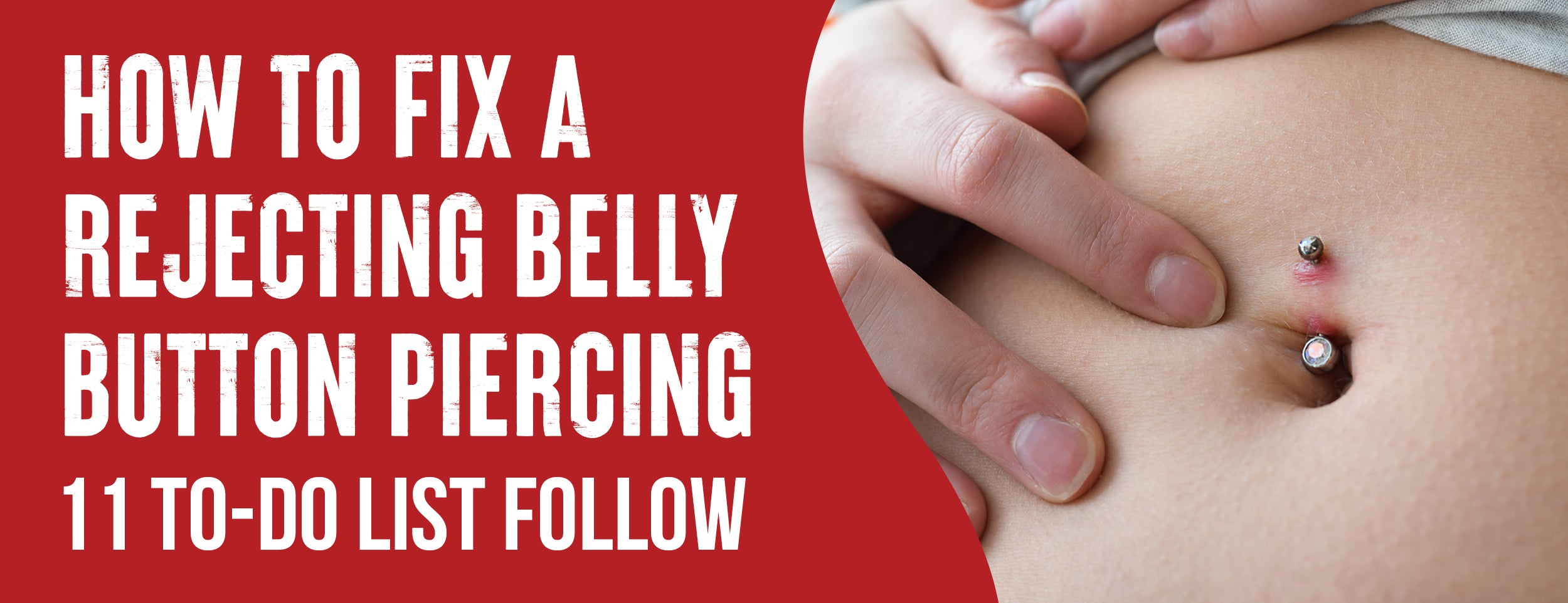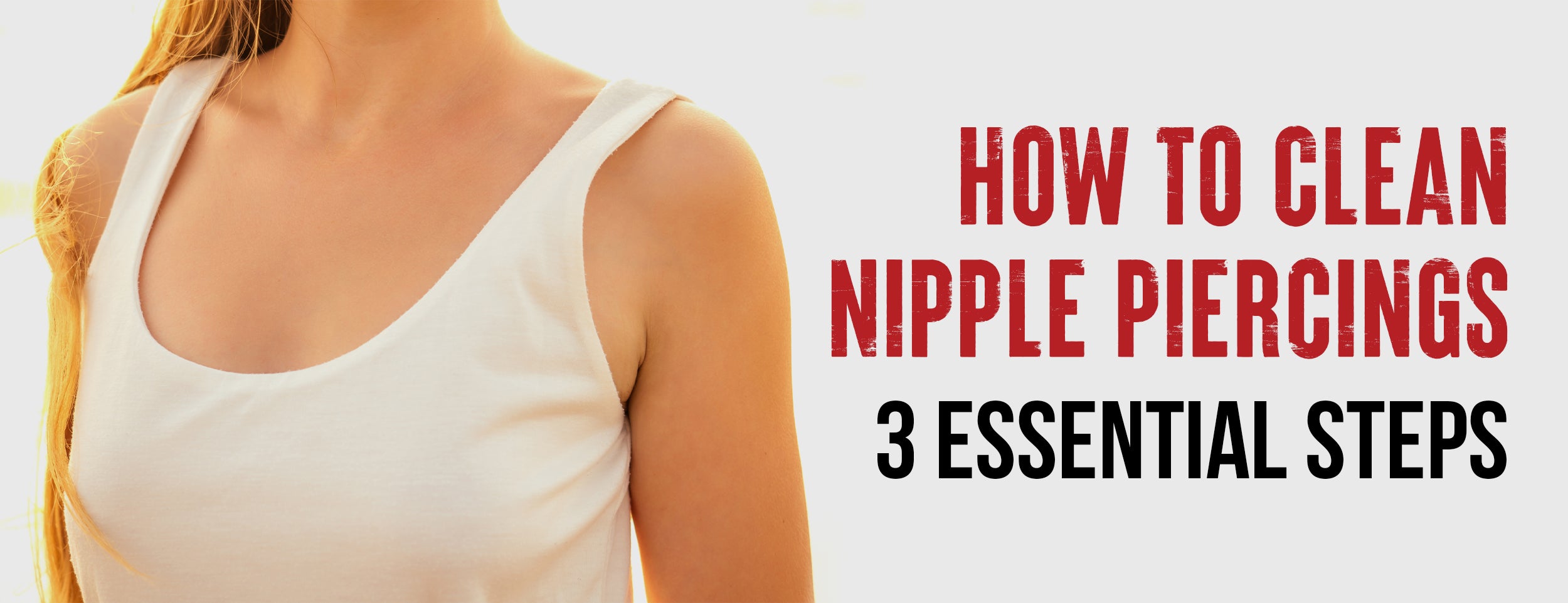Sleeping on your stomach can exert excessive pressure on your piercing, leading to discomfort and potential infection. Prevent complications by avoiding this sleeping position.
You should lie on your back or side while sleeping with a belly button piercing. If you sleep on your stomach, the piercing could be irritated and infected. Resting on your back or side is recommended to promote healing and comfort.
In this blog post, we'll delve into the best sleeping positions, how to safeguard your piercing while you're in dreamland, and additional tips to avoid irritation during sleep. Plus, we'll guide you on when it might be time to seek professional advice.
How to Sleep With A Belly Button Piercing: 3 Positions
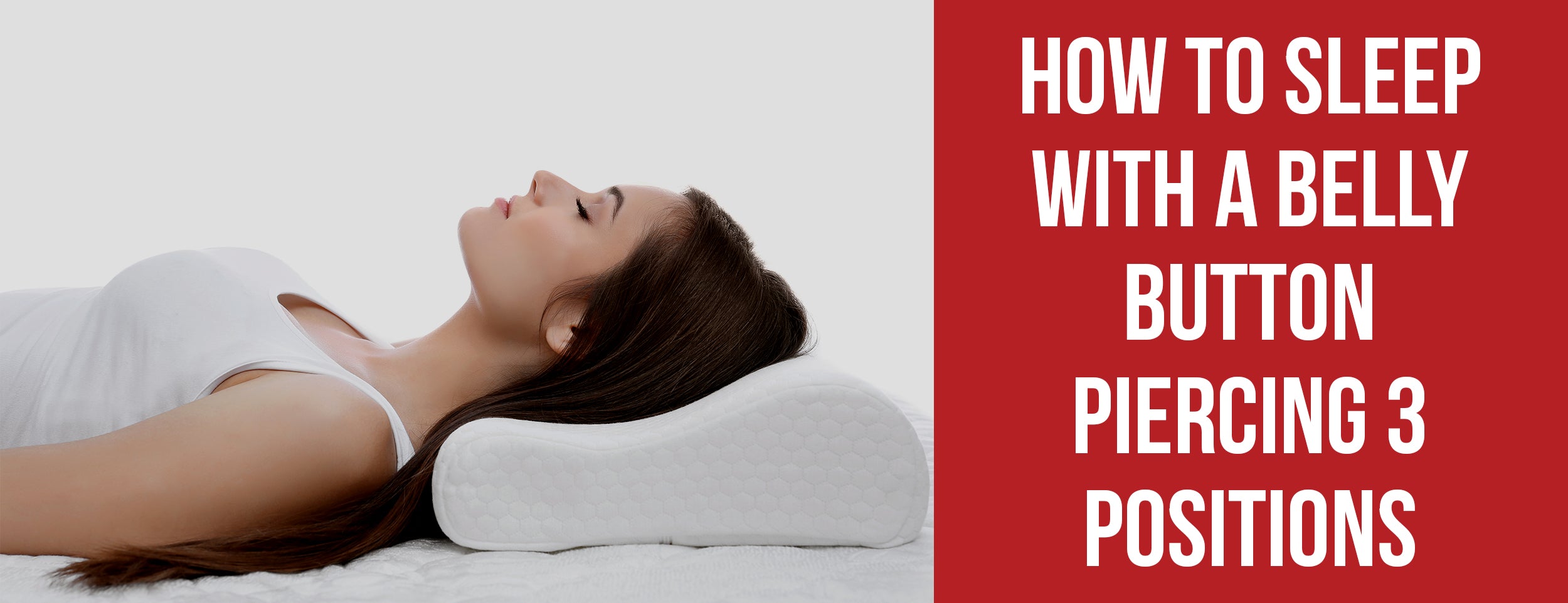
Sleeping after piercing your belly button can be difficult. Your new piercing needs to be protected against irritation and damage while you sleep. Here are some of the best sleeping positions for individuals with belly button piercings.
Exploring Different Sleep Positions
Just as every person is unique, so too are our sleeping habits. Let's dive into some common sleep positions and see how they may work for you with your new piercing.

Back Sleeping: This position might be the most beneficial for those with a new belly button piercing as it exposes the area, reducing the chance of irritation.
- Pros: This position helps keep the piercing site clean and pressure-free.
- Cons: It may take time to adjust if you're not accustomed to back sleeping.
Side Sleeping: If you're a side sleeper, try to sleep on the side opposite your piercing to avoid applying pressure.
- Pros: Provides comfort if this is your usual sleeping position.
- Cons: There's a risk of the piercing getting snagged in your clothing or bedding.
Fetal Position: If you naturally curl up while sleeping, ensure your knees don't press against your belly.
- Pros: A natural, comfortable position for many.
- Cons: The bent position may cause your knees to press against your belly, possibly causing discomfort to your piercing site.
Choosing the proper sleep position with a belly button piercing can make all the difference in your comfort and healing. Everyone's experience differs, so listen to your body and adjust accordingly.
Belly Button Piercings and Sleep: Protecting Tips
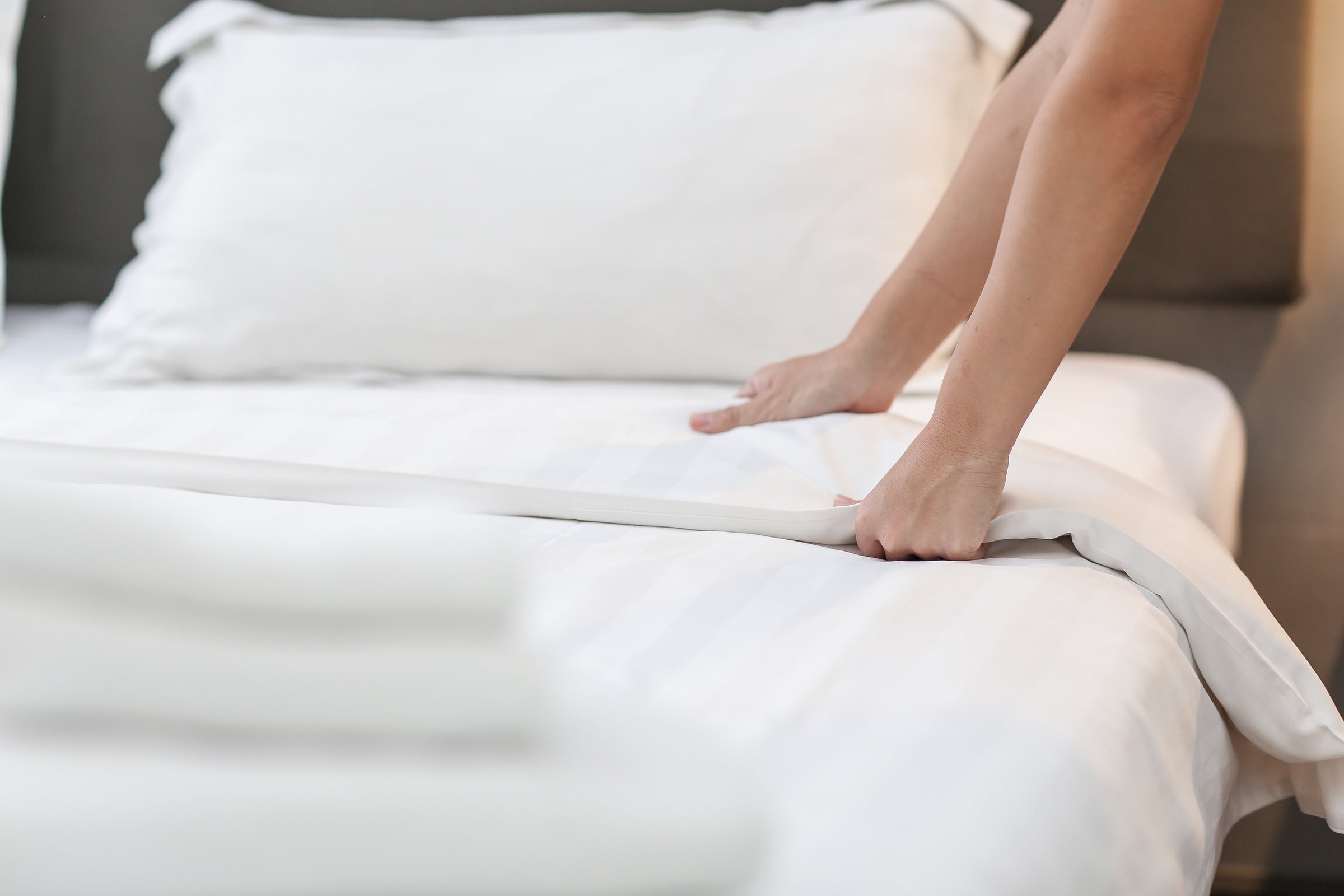
Piercing your belly button is an exciting experience. A certain level of care is also required, especially during sleep. A healing environment must be promoted while avoiding irritation. Here are some tips on protecting your piercing while you sleep.
Using Bandages or Breathable Clothing
Wrapping up your new piercing before you hit the hay can make a big difference. Here's how:
- Bandages: A clean, loose application can help protect your piercing from accidental tugs and snags. Just remember not to wrap it too tight.
- Breathable Clothing: Opt for loose, breathable clothing made from materials like cotton. This will help keep the area dry and comfortable.

Advantages of Bandages and Breathable Clothing
- Bandages: Provide a protective layer, reducing the risk of the piercing getting caught on something.
- Breathable Clothing: Helps keep the area dry, reducing the risk of infection.
The Role of Clean Bedding
Keeping your bedding clean is another crucial step in protecting your new piercing. Here's why:
- Reduces Infection Risk: Fresh, clean sheets lessen the chance of bacteria contacting your piercing.
- Less Irritation: Clean bedding helps minimize the risk of irritation from dirt or dust particles.
The Importance of Clean Bedding
- Reduces Infection Risk: Regularly changing and washing your bedding lowers the risk of exposing your piercing to harmful bacteria.
- Less Irritation: A clean bed means fewer irritants, allowing you to sleep better.
Pierced Belly Button Sleeping: Additional Tips
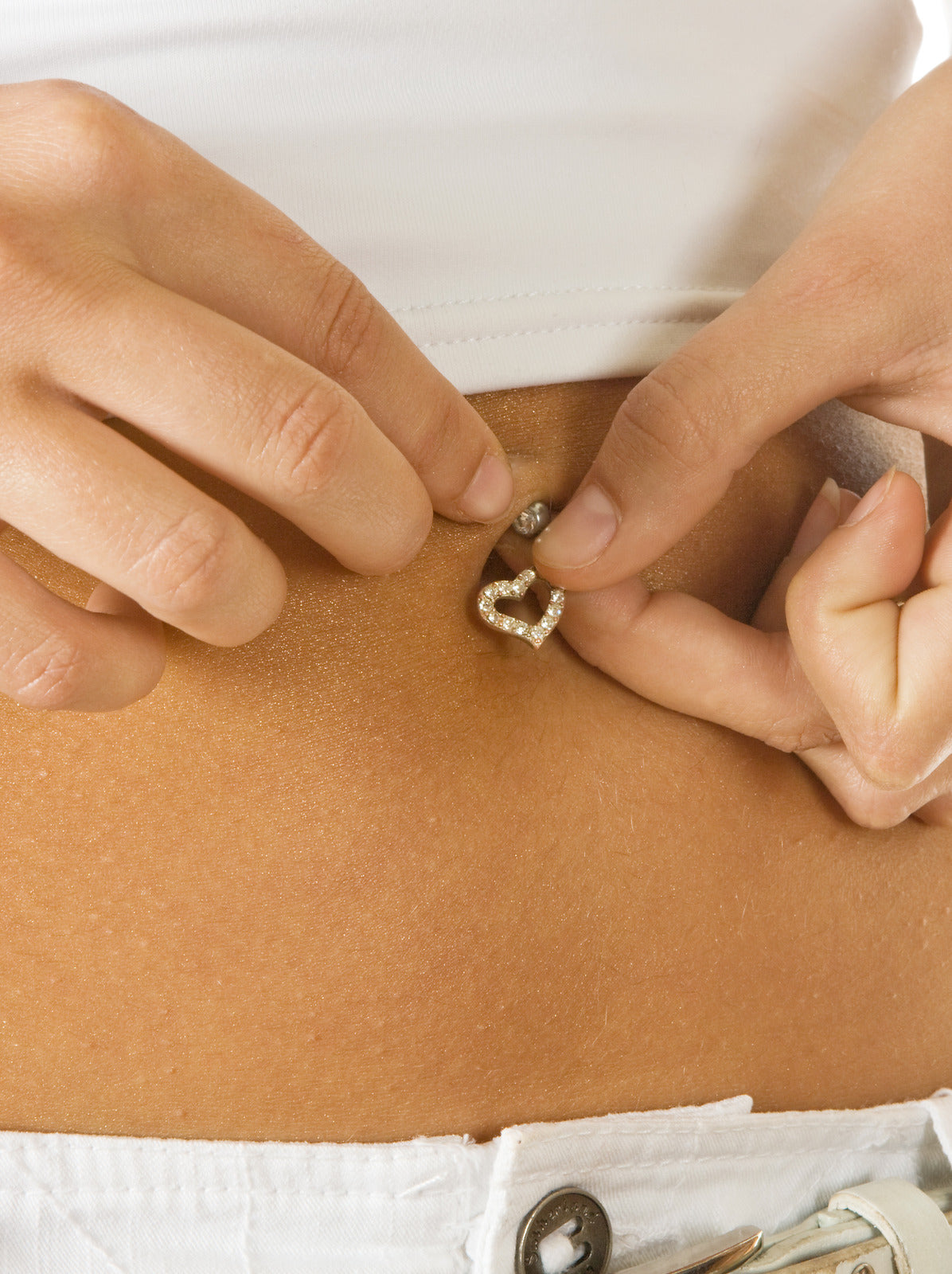
Sleeping with a newly pierced belly button requires more thought than simply jumping into bed. There are additional steps you can take to prevent irritation during sleep. We'll explore these further.
Avoiding Tight Clothing
Tight clothes may be fashionable, but they're not the best choice when trying to heal a belly button piercing. Here's why:
- Pressure: Tight clothing can stress your piercing unnecessarily, potentially causing discomfort or slowing healing.
- Friction: Clothes that cling to your body can cause conflict against the piercing, leading to irritation.
Why You Should Avoid Tight Clothing
- Pressure: Extra pressure on your piercing can lead to discomfort and potentially delay the healing process.
- Friction: Friction from tight clothing can irritate your piercing and make healing difficult.

Don't Touch or Press in Unnecessarily
Avoid unnecessary contact or pressure on your new piercing, especially while sleeping. Here's how:
- Avoid Touching: Do not touch or play with your piercing. Hands carry bacteria that can cause infection.
- Be Mindful of Pets: If you share your bed with a pet, be careful they don't accidentally scratch or nudge your piercing.
Contact and Pressure Avoidance Tips
- Avoid Touching: The less you touch your piercing, the lower your risk of infection.
- Be Mindful of Pets: Keep your piercing safe from playful pets to avoid accidental bumps or scratches.
Conclusion
Your belly button piercing should now be well-equipped to handle the nighttime adventures. We've explored the best sleeping positions, offered advice on protecting your piercing during slumber, and provided sleep tips.
Remember, it's normal to feel discomfort, but if something feels a tad off, don't hesitate to contact a professional. Your health and comfort are always the top priority. Here's to a safe, comfortable, and fabulous healing journey. Sweet dreams, and may your belly button piercing always add sparkle to your style.

